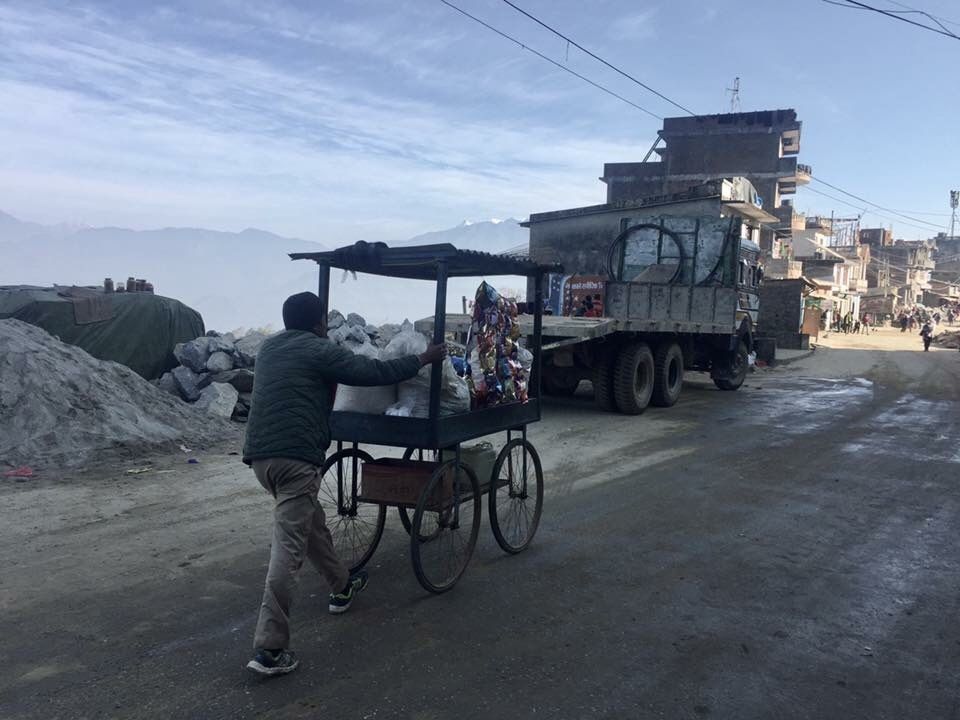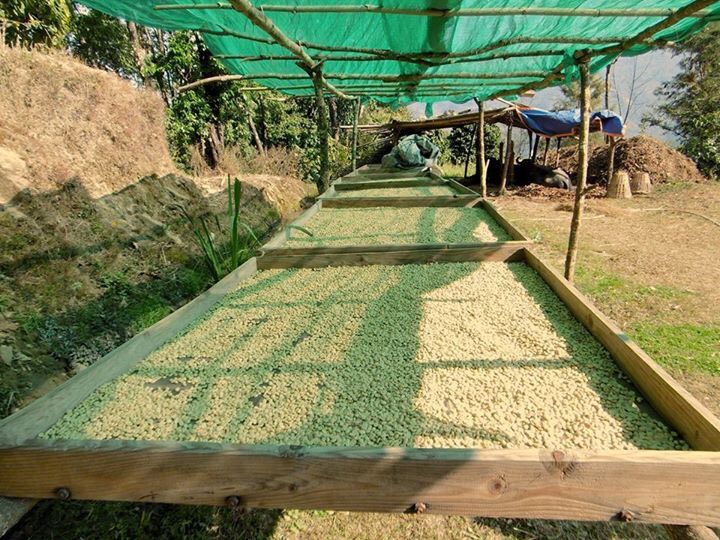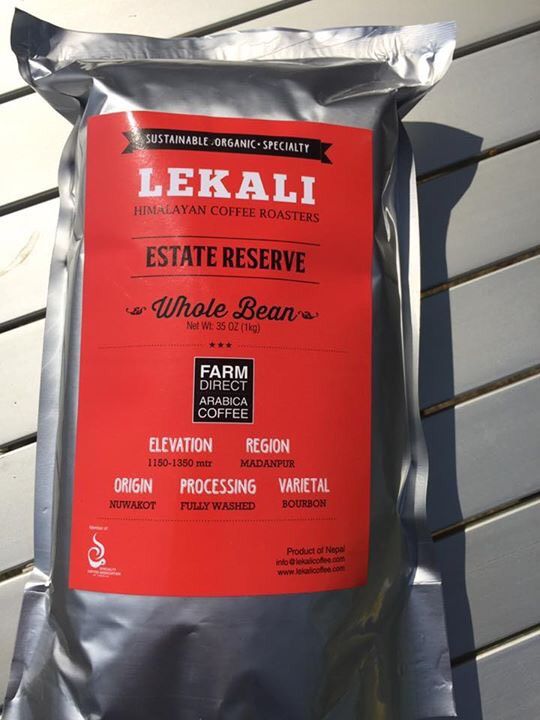Words and images by Mikhail Sebastian
Most specialty coffee folks have probably never had coffee from Nepal. The Federal Democratic Republic of Nepal is a landlocked Himalayan country located in South Asia. Nepal borders China in the north and India in the south, east and west, and it is the largest independent state in Himalayas. Previously known as Kingdom of Nepal from 1768 until 2008, the monarchy was abolished officially in 2008. The 2001 massacre of the royal family led the Maoist communist movement to take over and oust the monarchy for good. However, there’s still a lot of political instability and chaos.
Coffee farming in Nepal has a lot of promise because of the soil and the suitable climate of the Himalayas, where great Arabica thrives. Most coffee in Nepal is organically grown, and Bourbon and Typica are the most common varietals. Nepali coffee is exported to different parts of the world, mostly to Europe and Japan. Coffee is a relatively new cash crop for Nepal, and it could be an excellent Arabica-producing region with the proper investments and training.
The specialty coffee culture in Nepal is small—until 2002, most farmers didn’t think coffee could be a viable source of income.
Up until the early 2000s, coffee producers in Nepal were not sure if coffee could become a main source of income due to the lack of market demand. However, in 2002, after a substantial increase in the export and also in domestic market consumption, farmers were motivated to consider coffee as a major income-generating crop and start slowly integrating into the specialty coffee market. However, Nepal’s lack of financial resources makes it almost impossible to get the necessary equipment to meet the standards needed to produce high-quality beans. The Nepali specialty coffee market faces challenges both in improving quality and producing quality coffee in a sustainable way.
In early January, I got the chance to visit a coffee farm in Nepal. I was fortunate enough to meet Nima Sherpa, who is the owner of the only specialty coffee farm in Nepal. After getting a degree in Business Administration from the U.S., Nima returned to Nepal to start growing the specialty coffee market in his native country. He is an absolutely wonderful, smart, and knowledgeable person who is trying to make a difference in the specialty coffee market in Nepal.
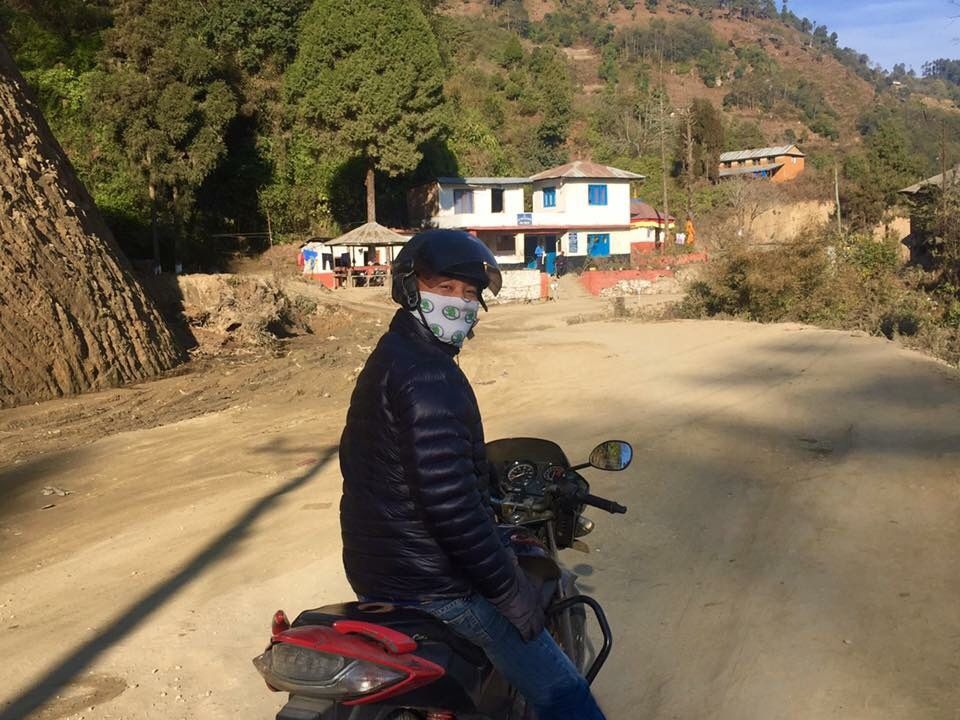
Nima Sherpa runs the only specialty coffee farm in Nepal. At about eight in the morning, Nima came on his motorbike to pick me up from the hotel and start our journey. We went to
Lekali Coffee Estate, located about two hours from Kathmandu on the slopes of Bhirkune Village in Nuwakot district. The Lekali Estate only uses organic fertilizers—typically a natural mixture of cow manure, molasses, and tree leaves—and the farm is planted with Arabica coffee trees.
The most common varietals in Nepal are Typica and Bourbon. Nima also grows Caturra, with some Pacamara plants dispersed throughout the farm.
Due to different microclimates at the estate there is a slight variation in temperature from one side of the farm to the other, even a few meters away. There are shade-grown coffees as well as coffee grown under the sun. From Arabica species, the dominant varietals at the farm are Typica and Caturra. Walking around the farm I also spotted some Pacamara and Bourbon.
The estate’s main processing method is washed. Coffee pickers are trained to pick only ripe cherries at the perfect point of maturation. After picking, the coffee is depulped and the mucilage coat is removed. After depulping the fermentation process starts. After the mucilage breaks down during fermentation, the coffee gets pre-dried to remove surface water. The moisture level of the final product during drying process is 12 percent, which is achieved slowly on raised beds
.
Most of the coffees in Nepal are fully washed, depulped, and dried on raised beds, building the foundation for great coffee.
The Nepal specialty coffee scene is still in the process of growing and developing. Nima is one of the only people trying to make a difference in the specialty coffee scene in Nepal. But he can’t do it on his own. He needs assistance, but there is very little help from international NGOs or government programs to aid him in improving the quality of coffee.
Recently, the Coffee Quality Institute, in cooperation with USAID, has been working to improve specialty coffee in Myanmar. If Myanmar can see improvements in coffee quality through investment of resources, then the same can be true for Nepal. If USAID, along with Coffee Quality Institute, could sketch the plan in providing assistance, training farmers, and developing Q Grader examinations in Nepal, the country’s specialty coffee market would benefit farmers and citizen alike.
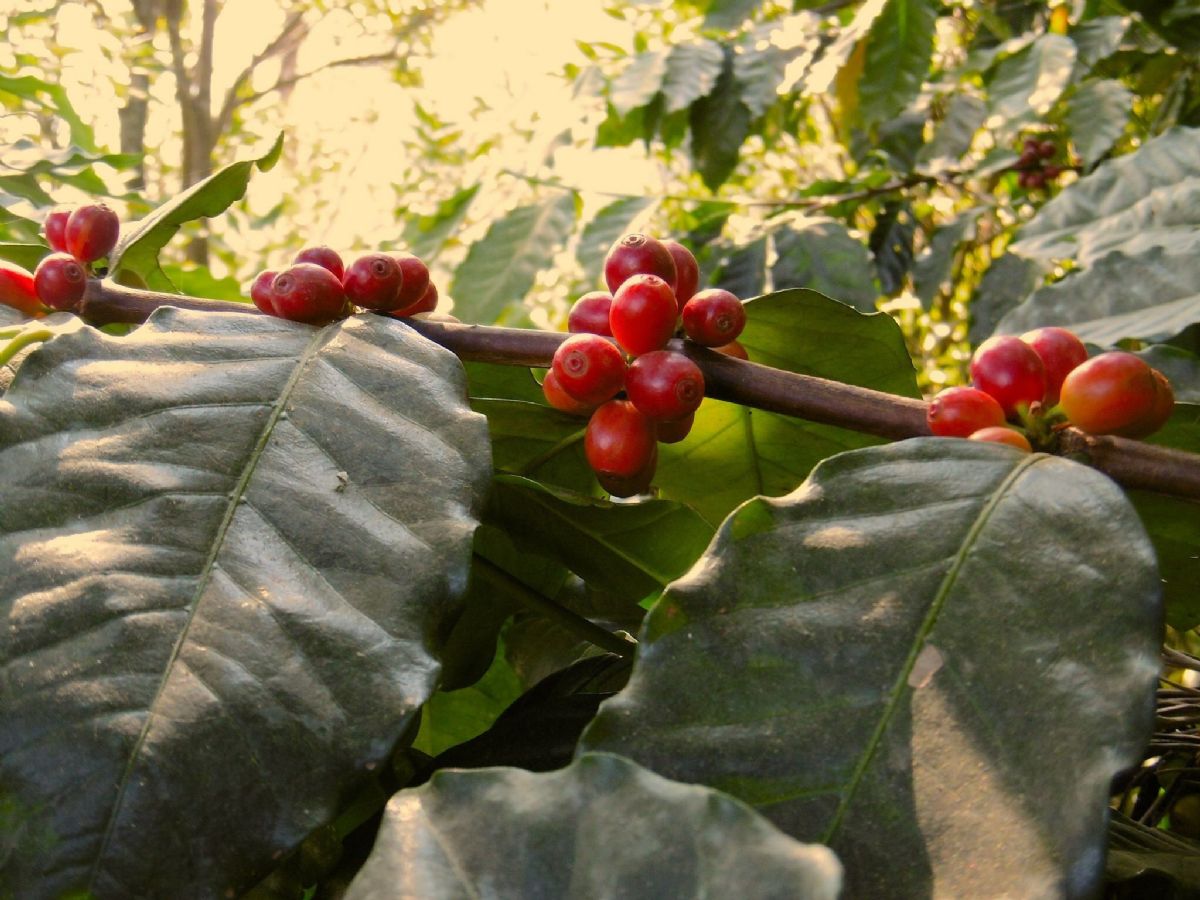
There’s still a lot of work to be done in Nepal, and investment from NGOs and government organizations can help grow and sustain the coffee market.
If you want to try some coffee from Nepal, you can contact Nima directly—he would be more than happy to help guide you through the mystery of Nepali coffee. It’s important to support coffee producers; without them we wouldn’t have the delicious coffee we enjoy. If you are interested in helping Lekali Coffee Estate, please get in touch with Nima at info@lekalicoffee.com.
